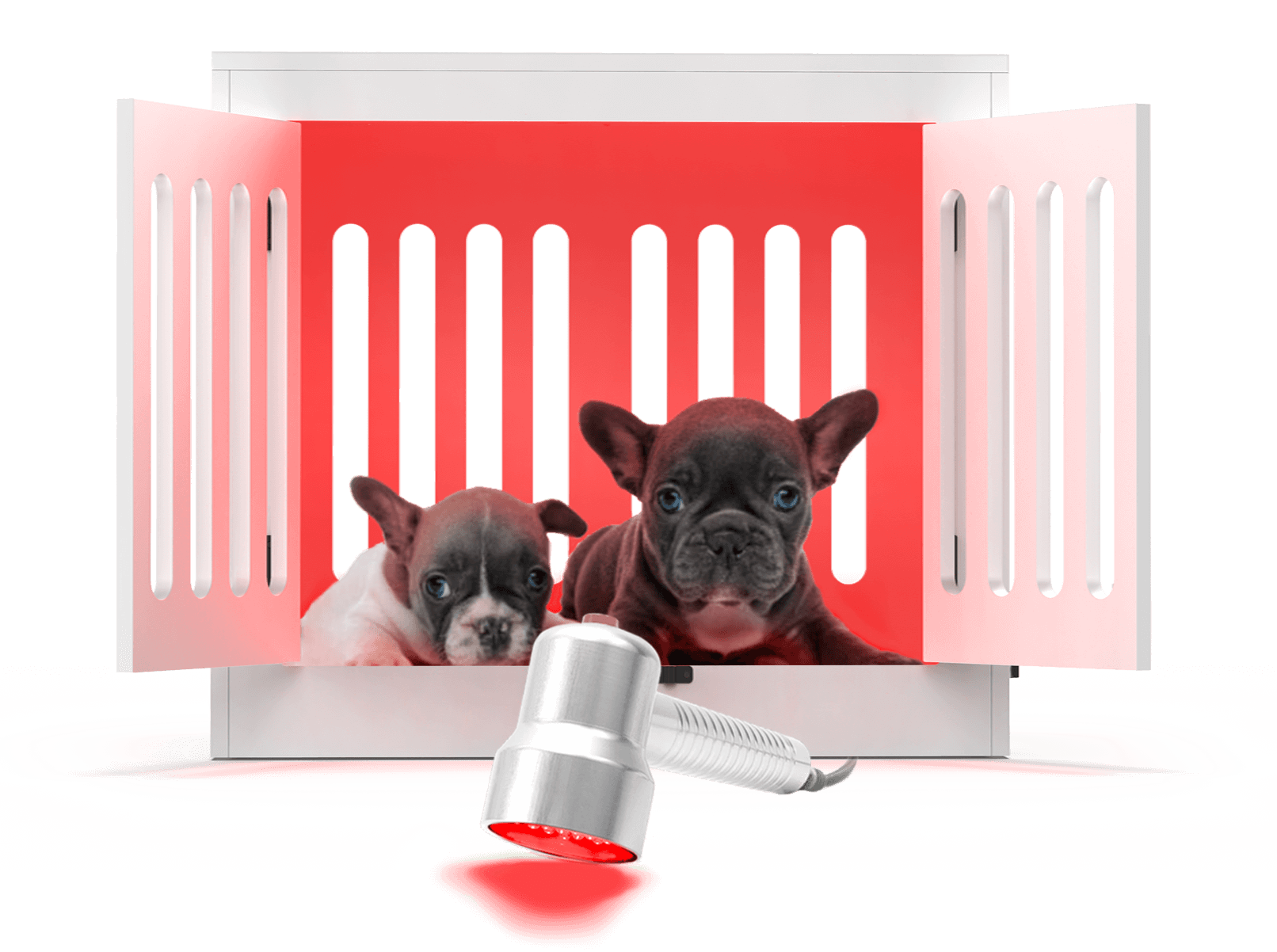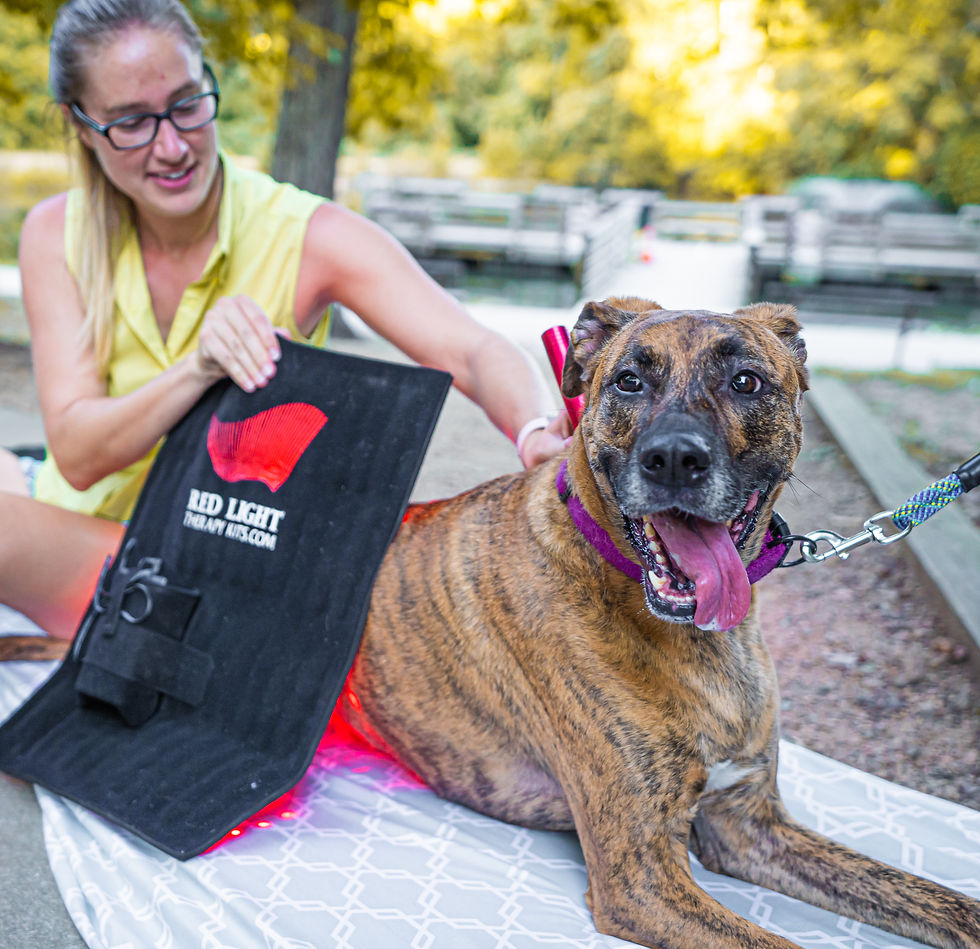Understanding Red Light Therapy Dogs: A Complete Overview for Pet Owners
Just How Red Light Therapy Can Improve Your Dog's Overall Wellness
Red Light Therapy has become an encouraging option for enhancing canine wellness. This non-invasive therapy stimulates cellular activity and advertises healing in pet dogs dealing with various ailments. Many pet owners report visible benefits, including discomfort relief and improved movement. Recognizing the hidden mechanisms and potential applications is vital. What details problems can it deal with, and just how can it be securely integrated right into a canine's treatment programs? The answers might amaze you.
Recognizing Red Light Therapy: What It Is and Exactly how It Works
Red light therapy has actually gotten popularity in human medicine, its application for canines is increasingly identified for its possible benefits. This non-invasive treatment utilizes details wavelengths of light, commonly in the near-infrared and red range, to promote cellular feature. The underlying concept includes the absorption of light by mitochondria, which increases ATP manufacturing and boosts cellular metabolic process.
Therefore, red light therapy promotes enhanced flow and aids in cells repair service. The therapy is supplied via devices such as lasers or LED panels, which can be guided at details areas of a canine's body. Treatment sessions are generally brief, making it a convenient option for animal owners.
Recognizing this technology's systems can aid caregivers make notified choices about their pet dog's healthcare. As research proceeds to evolve, the interest in red light therapy as a corresponding therapy modality for numerous canine conditions is most likely to expand.

Benefits of Red Light Therapy for Dogs
Red light therapy uses a number of significant advantages for canines, consisting of reliable pain alleviation and an accelerated healing process. This therapy can improve wheelchair and adaptability, making it particularly important for maturing or harmed pets. As more pet dog owners seek alternate therapies, comprehending these benefits becomes significantly crucial.
Pain Alleviation Applications
Numerous pet owners are transforming to red light therapy as a promising service for easing discomfort in their pets. This non-invasive treatment utilizes particular wavelengths of light to permeate the skin, boosting mobile task and reducing swelling. Pets dealing with persistent conditions such as arthritis, hip dysplasia, or post-surgical pain may experience considerable alleviation through this therapy. Researches indicate that red light therapy can enhance blood flow, helping to deliver vital nutrients to impacted areas, even more adding to discomfort decrease. In addition, it might aid to lower the reliance on pharmaceutical painkiller, which often come with unfavorable negative effects. As a result, numerous veterinarians are significantly advising red light therapy as a safe and effective alternative for managing discomfort in pets.

Accelerated Healing Process
The benefits of red light therapy extend beyond pain alleviation, playing a vital duty in increasing the recovery process for pets. This ingenious treatment promotes mobile regrowth, boosting the production of ATP, which enhances energy schedule for healing cells. Additionally, red light therapy boosts blood flow, resulting in enhanced oxygen and nutrient delivery to injured areas. This increased blood circulation not only help in faster recovery but also reduces swelling, a typical barrier to recovery. On top of that, the therapy urges collagen production, vital for cells repair service and regeneration. In general, by promoting these organic processes, red light therapy significantly reduces recovery times, enabling dogs to return to their typical tasks a lot more swiftly and with better vigor.
Boosted Mobility and Adaptability
Boosted mobility and adaptability are substantial advantages of red light therapy for dogs, specifically for those struggling with joint discomfort or rigidity. This non-invasive treatment makes use of specific wavelengths of light to permeate cells, advertising enhanced flow and decreasing swelling. Because of this, pet dogs often experience remedy for discomfort related to joint inflammation, hip dysplasia, or post-surgical recuperation. Normal sessions can stimulate cellular repair work and boost muscle function, enabling dogs to reclaim their all-natural series of movement. Owners have reported noticeable renovations in their animals' capability to run, leap, and take part in activities they as soon as appreciated (Red Light Therapy Dogs). Ultimately, red light therapy not just assists minimize pain yet also adds to a much more energetic and meeting way of living for canines, boosting their total high quality of life
Problems That Can Be Treated With Red Light Therapy
Red light therapy has actually gained appeal in various fields, its application in vet treatment, specifically for canines, has actually revealed guarantee in treating a range wikipedia reference of conditions. This non-invasive therapy method is believed to assist in minimizing pain and inflammation connected with joint inflammation, helping older pets gain back mobility. In addition, it has actually been made use of to assist in the recovery of wounds, burns, and medical lacerations, promoting faster recuperation times.
Skin conditions, such as dermatitis and locations, might also react positively to red light therapy, decreasing inflammation and motivating healthier fur development. Furthermore, the therapy can be useful for pet dogs struggling with conditions like hip dysplasia, ligament injuries, and muscular tissue strains. By stimulating mobile repair service and boosting flow, red light therapy uses a holistic technique to boosting the general health of dogs, offering relief and promoting a better high quality of life.
The Scientific Research Behind Red Light Therapy
Red light therapy runs on the principle of photobiomodulation, which includes the application of particular wavelengths of light to stimulate cellular processes. These wavelengths, normally ranging from 600 to 1000 nanometers, permeate the skin and are taken in by mitochondria, the energy-producing elements of cells. This absorption enhances ATP manufacturing, resulting in increased energy availability for mobile functions.

Studies suggest that red light therapy may likewise modulate immune feedbacks and support overall cellular health and wellness. By using these biological devices, red light therapy uses a non-invasive treatment alternative that can add significantly to a pet's wellness and healing from different conditions.
Just How to Incorporate Red Light Therapy Into Your Dog's Routine
Incorporating red light therapy right into a pet's regimen can be a straightforward process, provided that pet owners approach it with treatment and consistency. Choosing an appropriate tool is basic, as options variety from handheld systems to bigger panels (Red Light Therapy Dogs). Proprietors must begin by presenting the therapy gradually, allowing their pet dogs to adapt to the light exposure. Procedure can be scheduled for around 10 to 20 minutes, preferably 2 to 3 times a week, depending on the pet's needs and the suggestions of a veterinarian
Setting a comfortable atmosphere is necessary; utilizing a peaceful area where the dog feels unwinded can enhance the experience. Throughout the sessions, owners can engage their animals with relaxing voices or gentle petting to develop a soothing environment. Keeping track of the dog's feedback is crucial to assure the therapy is advantageous and enjoyable, eventually helping to boost their general well-being.
Safety Considerations and Measures for Red Light Therapy
When considering red light therapy for pet dogs, safety must constantly be a leading priority to guarantee a positive experience. Pet owners have to speak with a vet before beginning any type of therapy, specifically for canines with pre-existing conditions or those taking drugs. It is essential to choose gadgets especially made for animals, as human devices might not appropriate.
Correct eye security is essential; both the dog and the handler ought to wear goggles to protect their eyes from possible damage. In addition, sessions should be checked very closely to stay clear of too much exposure. It is advisable to begin with shorter sessions and gradually boost period based on the dog's response.
Proprietors must also observe their pets for any type of indications of discomfort or unfavorable responses during and after treatment. By complying with these safety factors to consider, red light therapy can be a beneficial and secure alternative for improving a dog's well-being.
Regularly Asked Concerns
Just how Often Should I Make Use Of Red Light Therapy on My Dog?

Can Red Light Therapy Replace Traditional Veterinary Therapies?
Red light therapy must not replace traditional vet therapies. While it may complement treatments by advertising recovery and decreasing discomfort, seeking advice from a veterinarian stays crucial for thorough treatment and attending to underlying wellness issues in canines.
Are There Any Adverse Effects of Red Light Therapy for Dogs?
Red light therapy for dogs normally has very little negative effects, such as short-lived skin redness or warmth at the therapy website. A lot of dogs tolerate the therapy well, however keeping an eye on for any kind of uncommon reactions is advised.
What Is the Ideal Period for every Red Light Therapy Session?
The optimal duration for each and every red light therapy session typically ranges from 10 to 20 mins, depending on the dog's certain demands and condition. Consultation with a vet is advised to customize the therapy appropriately.
Is Red Light Therapy Suitable for All Pet Types?
Red light therapy is typically suitable for a lot of dog breeds. Individual wellness conditions and sensitivities might affect its applicability. Consulting a veterinarian assures the therapy is safe and valuable for each and every specific dog.
Many canine owners are transforming to red light therapy as an encouraging remedy important source for alleviating pain in their animals. Boosted movement and versatility are considerable benefits of red light therapy for dogs, particularly for those experiencing from joint pain or tightness. Red light therapy runs on the concept of photobiomodulation, which involves the application of particular wavelengths of light to promote mobile processes. Study shows that red light therapy can promote recovery, minimize swelling, and ease discomfort in pets. Red light therapy for dogs typically has marginal side results, such as short-lived skin redness or warmth at the treatment site.